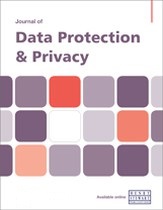Implementation of the ECOWAS Supplementary Act on Personal Data Protection: Lessons from the EU GDPR
Abstract
The process of accessing information about any individual is fast becoming beyond the control of private individuals as long as internet technology continues to penetrate more areas of our routine lives. The question has always been how far private individuals can regulate how their private information is accessed, processed and for what purpose. The European Union (EU) has made the General Data Protection Regulation (GDPR) for the purpose of filling the regulatory gap in protecting the right to data privacy of Europeans under the Data Protection Directive (1995). For the EU as a supranational organisation, the regulatory system is designed to be protective of the privacy right of every citizen within and outside the EU because it has the institutional capacity to sanction business entities that breach the GDPR. The Economic Community of West African States (ECOWAS) has adopted the Supplementary Act on Personal Data Protection. Although the ECOWAS has the outlook of a supranational community, it lacks the institutional structure that should make its laws enforceable across the member states. With its present structure, however, the ECOWAS Act is still a model instrument for data protection in the African region and can be improved upon. This paper examines the ECOWAS Act and studies the structure and implementation of the GDPR to understand why the act may not effectively be enforced across the member states without the reform of the ECOWAS.
The full article is available to subscribers to the journal.
Author's Biography
Dennis Agelebe is a Postdoctoral Research Fellow at the Environmental Law Center, Faculty of Law of the University of Cologne, Germany. He is also a Partner in the law firm of DAOS LP, Lagos Nigeria. He has academic research experience in the Czech Republic, New Zealand, India and Germany. He is a Solicitor and Advocate of the Supreme Court of Nigeria. His areas of interest are Energy, Environment, Information Technology, and Trade Law
